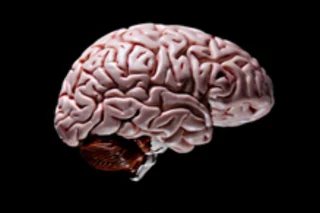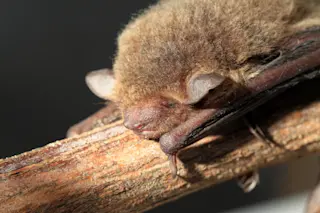According to a new study out in Science Translational Medicine, treating depressed mice with gene therapy in the brain to bolster a protein connected to the neurotransmitter serotonin can make those depressive symptoms dissipate. Here's the gist: The gene in question creates a protein called p11 that help carry serotonin receptors up to the surface of a brain cell where they can receive signals from other brain cells. Poor serotonin signaling may be one of the major drivers behind depression, and a dearth of p11 could worsen the problem, according to study author Michael Kaplitt.
"In the absence of p11, a neuron can produce all the serotonin receptors it needs, but they will not be transported to the cell surface," said Kaplitt. [AFP]
To test this, back in 2006 Nobel winner
Paul Greengard (another coauthor on this study) created mice engineered to lack p11. Indeed, those mice developed the signs ...














